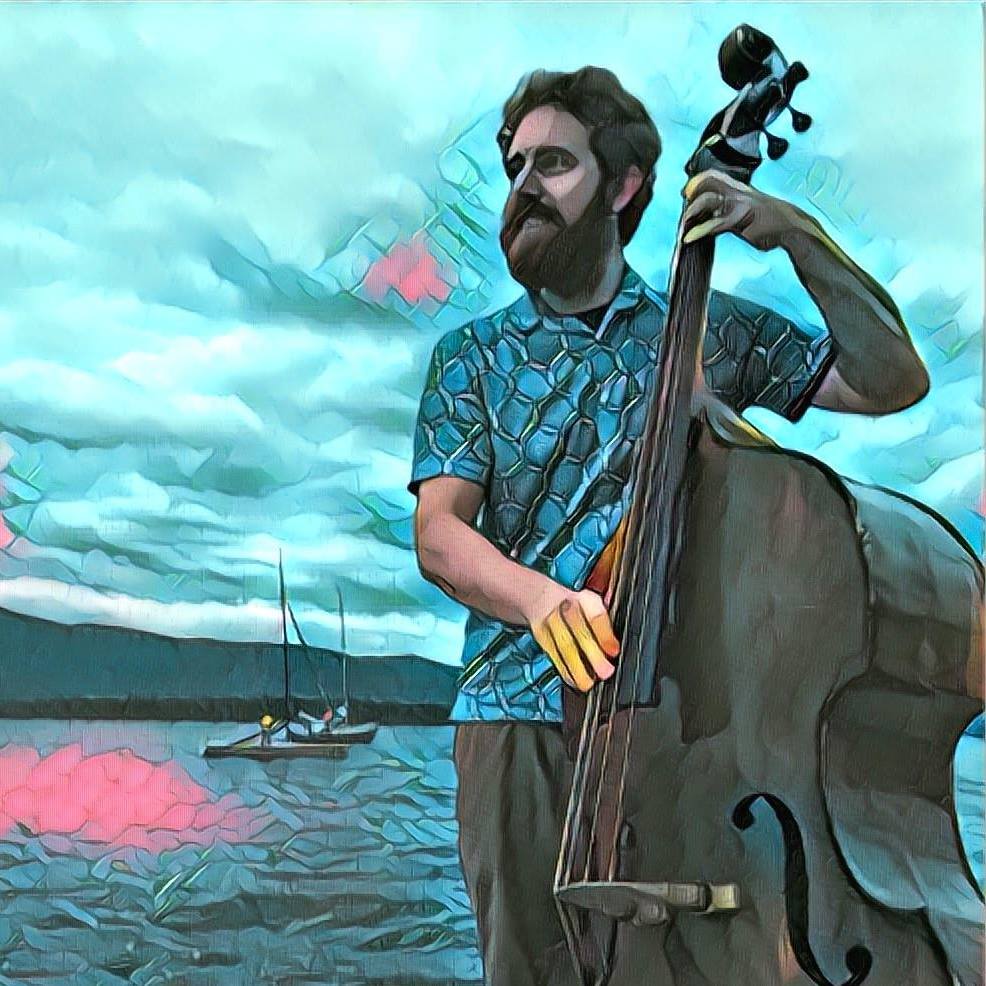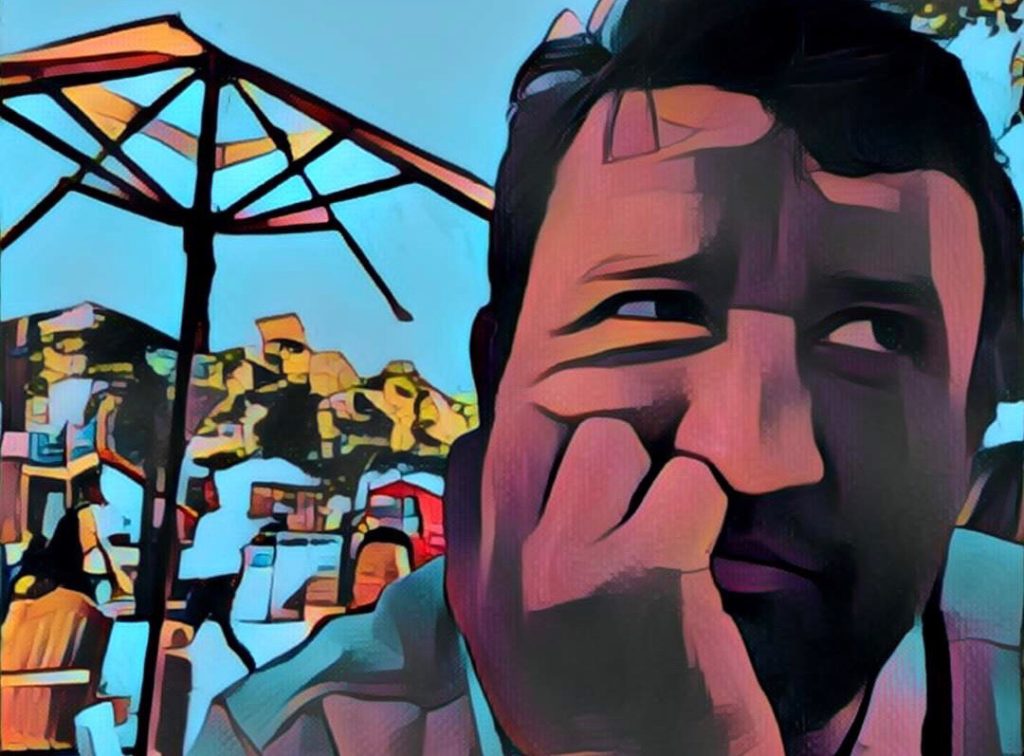
Desire is the thing that both leads and eludes us. As reflective beings, desire is the force that flows between our intricate web of relationships, capable of binding or dividing us. Largely beyond our awareness, we are compelled by the desire of others. When we receive inspiration, it is always from this collective other. We begin to see the air as infinitely dense, filled with endless shared ideas and revelations. The vast sea of otherness continually becomes and shapes its inhabitants through endless interaction and reciprocity. Through sharing desires with the other, we share a life force that is central to the becoming of our existence. Essentially, the vast entity of the other is ironically central and inseparable from the self. The notion of an autonomous self then perhaps does not exist. Instead, an ever-becoming self formed and bound by relational desire is suggested.
In the midst of these discoveries, I found that my previous perception of self began to look completely different. In fact, the whole concept of self that I thought I somehow always owned or represented had suddenly begun to melt away. This was a frightening discovery at first, but it ultimately opened the door to thinking of self in terms of a much larger, much more intricately relational entity than I could have imagined. My autonomous idea of self was replaced with the suggestion of a self that is largely comprised of the other. Through my relationships with others, I am gradually, intricately formed in desire’s dance. My complex web of relationships shapes me and determines who I become. In exploring these concepts further, the image of a river came to mind.
Imagine a mystical, invisible, mysterious four-dimensional river flowing all around us, through us and between us. We are but a drop in its fluidity, yet we essentially become much more as we find ourselves completely submerged in its ebb and flow of desire. Desire swirls and sweeps us along this river as its intimate playthings. Beyond our awareness, beyond our control, we are tossed to and fro by the current of our attraction and repulsion to desire. We essentially become the river, because it becomes the substance of our self, the means of our becoming. As desire leads us, dragging us endlessly through this river of pulsating ideas and inspirations, we are gradually formed by its persuasions of beauty. This fluid nature of desire’s mysterious life force runs through all in all, enabling the gradual birth of our collective becoming. Perhaps this idea paints a picture of the mysterious womb of God in constant labor pains, the unformed life energy that presupposes possibility.
As a musician and filmmaker, the issue of originality and intellectual property has always been forefront. It seems that most cling to the negative view of imitation largely predominant roughly within the last few centuries. When imitation is seen as a lesser form of creativity that is somehow inferior and thus not creative, it is an unfortunate assumption, to say the least. The study of mimesis pioneered by Rene Girard, along with the discovery of mirror neurons and other recent advancements in imitative science has lead us to think otherwise. The notion that true creativity is an isolated phenomena or process that can only be mustered from within the confines of a self isolated from all outside influence is proved false when looked at through the lens of collective desire. Leonardo Da Vinci’s revered idea of a creativity that eludes all outside influence therefore seems highly unrealistic. On the contrary, it is likely that desire’s collective influence is what leads yet eludes us all. In other words, it cannot be possible to create without the unavoidable persuasion of the other. This persuasion is an essential part of the ongoing process of creativity. Here we find creation’s open invitation to participate in creating.
Our sense of self thus grows to become infinitely larger than any isolated autonomy would suggest. Assuming a new identity within the vast scope of an incarnation immersed in creativity helps us better understand how we fit into a world of inter-dividualism. All efforts to prove that we are unique begin to seem unnecessary. Our distinctive filters through which our attraction and repulsion of desire occur develop through the larger scale of our intricately connected relationships. These attractions and repulsions unique to all then determine our one-of-a-kind set of influences. Furthermore, it is each response and interpretation of our own sets of influences that forms a perspective that is by effect, completely original. In this light, we are all so effortlessly and naturally original that no one perspective can ever be completely reproduced. Intellectual property then appears to miss the point in trying to claim ownership of collective inspiration – it ultimately fails to consider that it is perhaps our collective inspirations that preface and shape our intellect.
So when we create, we are perhaps tapping into a mysterious, invisible, infinite matrix of possibilities that flows from the collective, shared inspiration that is all around us. Possibilities are floating by, compelling us to connect and respond in playful interaction. In creating, we are lured to latch on to these possibilities, pulling them as threads from the infinite matrix to make them actualities. So instead of an idea of creativity that is only functional in isolation, or a creativity that claims to start from nothing, the inter-dividual creative process is being compelled to highlight distinction from among the wild chaos of our ever-present collective inspirations. Similarly, identity adopts this same web of inter-dividualism. Humanity is all in the same boat. We are all an endless process of relationships connected via the desire of others. There would be no me without you, and there would be no you without me. Perhaps the incarnation ultimately shapes and nourishes itself through this life force of desire, the force of God’s indulgence.
The fact then that we are free to question the meaning of life amidst all of life’s meaning is phenomenal. It means that there is apparently no clear answer to the question, even after multiple millennia of human reflection. Therefore, we are lead to the suggestion that perhaps creation is an indulgence. Here, we can consider the possibility of a creation that is desired into existence by God. If we are God’s indulgence – if our existence was not only a desire of God, but also a means to express the infinite density of God’s identity, then we may begin to discover our essential part in the puzzle of this identity. Our sense of self then becomes yet again so much larger than we had thought.







Bobby, I loved to re-live this journey of our emerging “new” (or let’s face it, original) self! You did a great job introducing inter-dividualism. I especially appreciate your ideas about intellectual property. It makes me think that what we experienced through the Mimesis Academy courses (its fantastic conversational platform in effect embodying the message) is part of a much larger movement world-wide: grassroots connecting and sharing. (I am thinking of examples such as Über, collective banks, Airbnb, new models of education in Finnland and Estonia, but also Facebook, etc.) May I say that the realization how connected we are, and how badly we need healing from rivalry and enmity… is initiated by Papa perhaps? Can you imagine the peace it can bring some day? Up for adventure! Very inspiring article indeed, thank you! p.s. Absolutely loved the artwork (your portrait) too.
“There would be no me without you and there would be no you without me,” loved it Bobby tremendously, all of it and your portrait too!
I have noticed that I am so enjoying the artwork I do now, fabulous ideas clamour demanding attention which makes me laugh with delight. In telling a friend about the Memisis Academy and the course I said it has made me very comfortable and extremely content with who I am. Now my life flows happily along in a river of delight and joy full of adventure and unending discovery.
Love all of it and agree, especially I would love to see myself as “indulgence of God” and even better His identity! Love how you explored subject of creativity- so true.